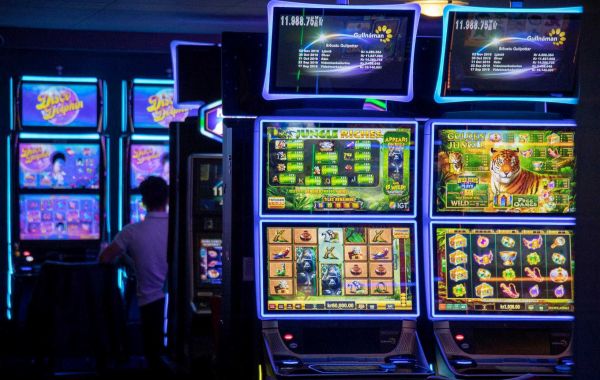For a long time, online and offline gambling services have been considered at odds, with traditional land-based operators fearing cannibalisation from their web-based counterparts. However, the last couple of years have taught us an important lesson about the symbiotic relationship between the two, and we’re perhaps witnessing the beginning of a long-term convergence.
If you want to know more about the state of the gambling industry’s two souls as we approach the end of 2022, keep reading.
Paradise lost: offline casinos’ fall from grace
Far from Las Vegas’ neon-tinted, casino-lined Strip and the glitz of Monaco — shining jewel of the French Riviera and home to the legendary Monte Carlo Casino — lies the true gambling capital of the world: Macau.
Macau is one of China’s special administrative regions, and the only place in the People’s Republic where gambling is legal. This tiny peninsula on the Pearl River Delta houses over 40 casinos, which generated a mind-blowing gross gaming revenue of MOP 292.46bn (EUR 31.34bn / USD 36.45bn) in 2019. To put things in perspective, the combined GGR for all the establishments in the Las Vegas Strip during the same year amounted to “just” USD 6.58bn, while the Monte Carlo Casino raked in EUR 239.8m.
But that was then, and this is now. In 2020, Covid-19 swept across the planet, forcing extended lockdowns, travel limitations, and closures throughout much of the year.
Unsurprisingly, this caused the collapse of land-based casinos’ revenues.
Macau establishments, which cater primarily to tourists from mainland China and the rest of East Asia, saw their GGR fall by nearly 80% in 2020, down to MOP 60.44bn. Las Vegas Strip casinos fared better, recording revenues for USD 3.73bn — a 43.3% year-on-year decline. And on the glitzy Riviera, the Monte Carlo Casino had to deal with a 48% fall in GGR.
Standing tall: online casinos’ resilience
According to EGBA (European Gaming and Betting Association) data, revenues for the industry on the continent fell from EUR 98.6bn in 2019 to EUR 75.9bn in 2020. While the GGR from land-based establishments declined by over 30%, revenues from online gambling https://spilavitianetinu.com/ grew by 7%. This means that, in the space of a single year, online GGR went from a third to just over half of land-based revenues.
But that’s not the whole story: EGBA’s numbers don’t distinguish between revenues from casino gaming and sports betting. What we’ve witnessed in 2020 was an impressive surge in online casino GGR during the months of lockdown, both in absolute and relative terms.
Take Italy — the largest gambling market in the European Union — as an example. Online casinos’ GGR registered a 50.8% year-on-year increase in May 2020 (at the height of Covid-19’s first wave in the country), and of 80.6% in December 2020 (peak of the second wave). Meanwhile, online sportsbooks registered 73.6% and 18.37% decreases during the same periods.
The collapse of online sports betting — particularly in May 2020 — reveals another truth: brick-and-mortar establishments aren’t the only part of the industry which is susceptible to disruption. Due to their dependence on real-life sporting events, betting services are equally at danger. Granted, sportsbooks adapted by pushing esports as a betting alternative, but the numbers don’t lie.
While not the most lucrative in absolute terms, online casinos have proven to be the most resilient form of gambling service on the market. In April 2020, sports betting’s online gambling market share in Italy was 30% below its one year running average, while poker tournaments’ and online casinos’ were up 11.7% and 15%, respectively. Meanwhile, land-based establishments had their doors firmly shut.








